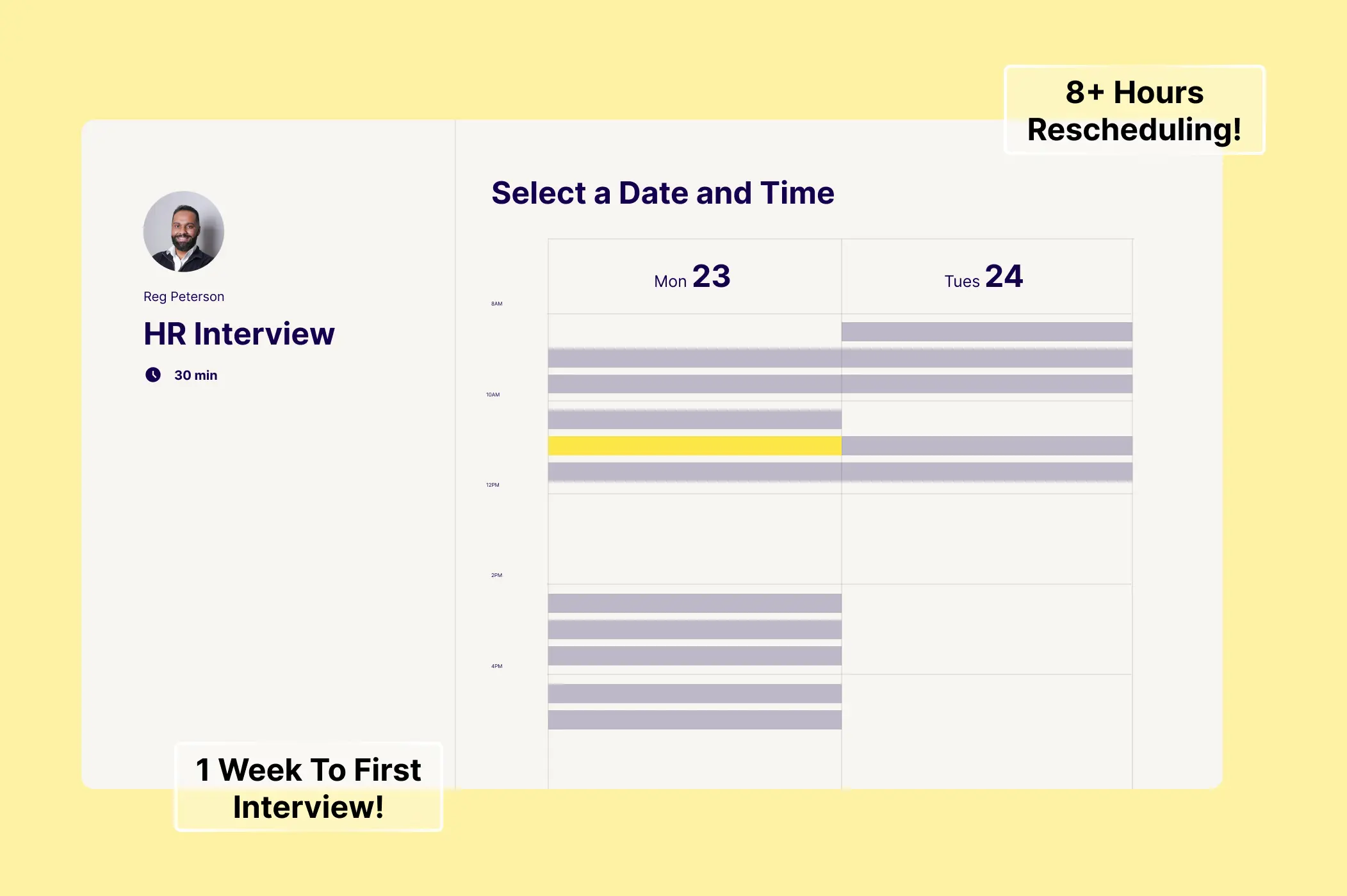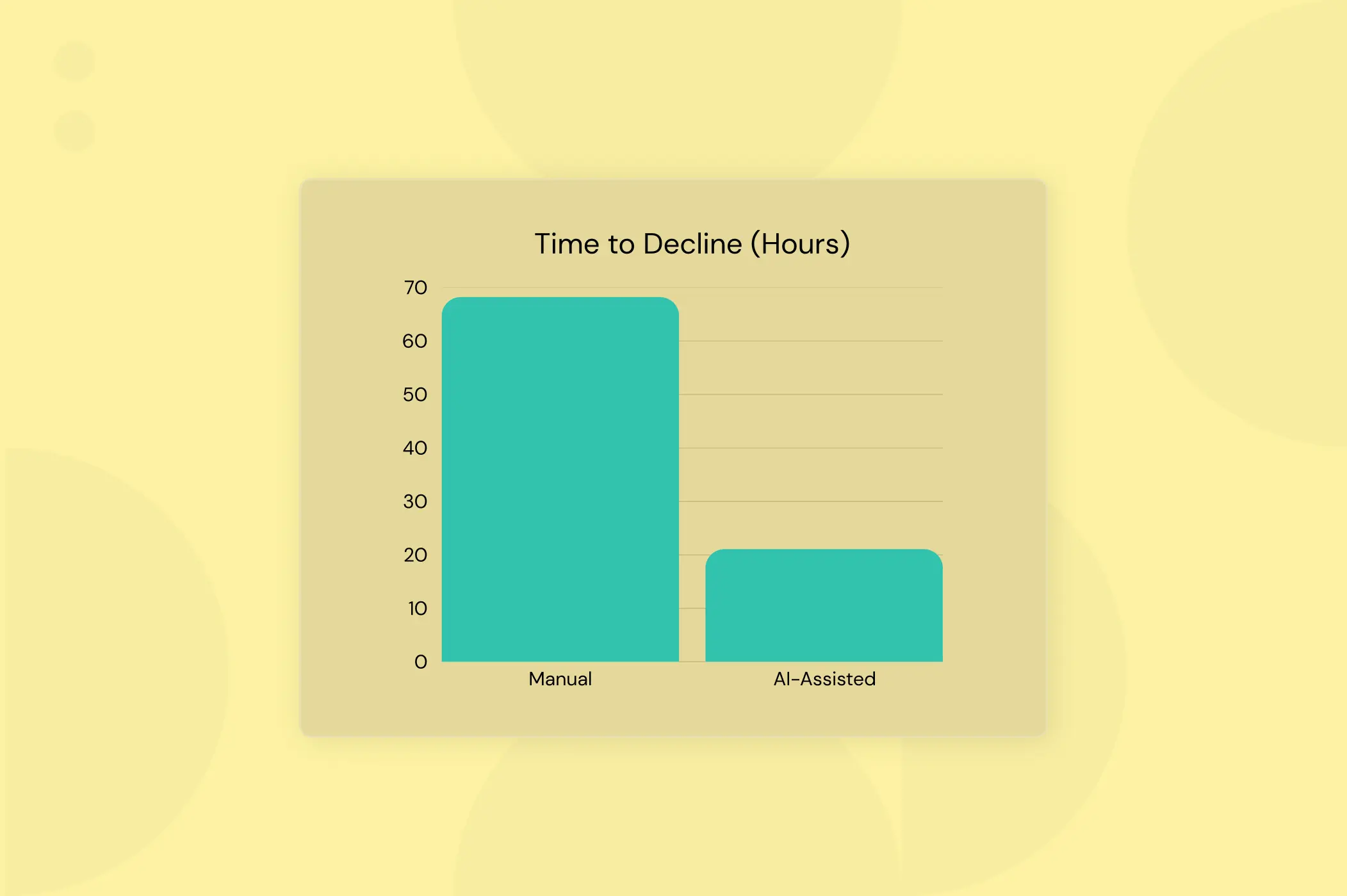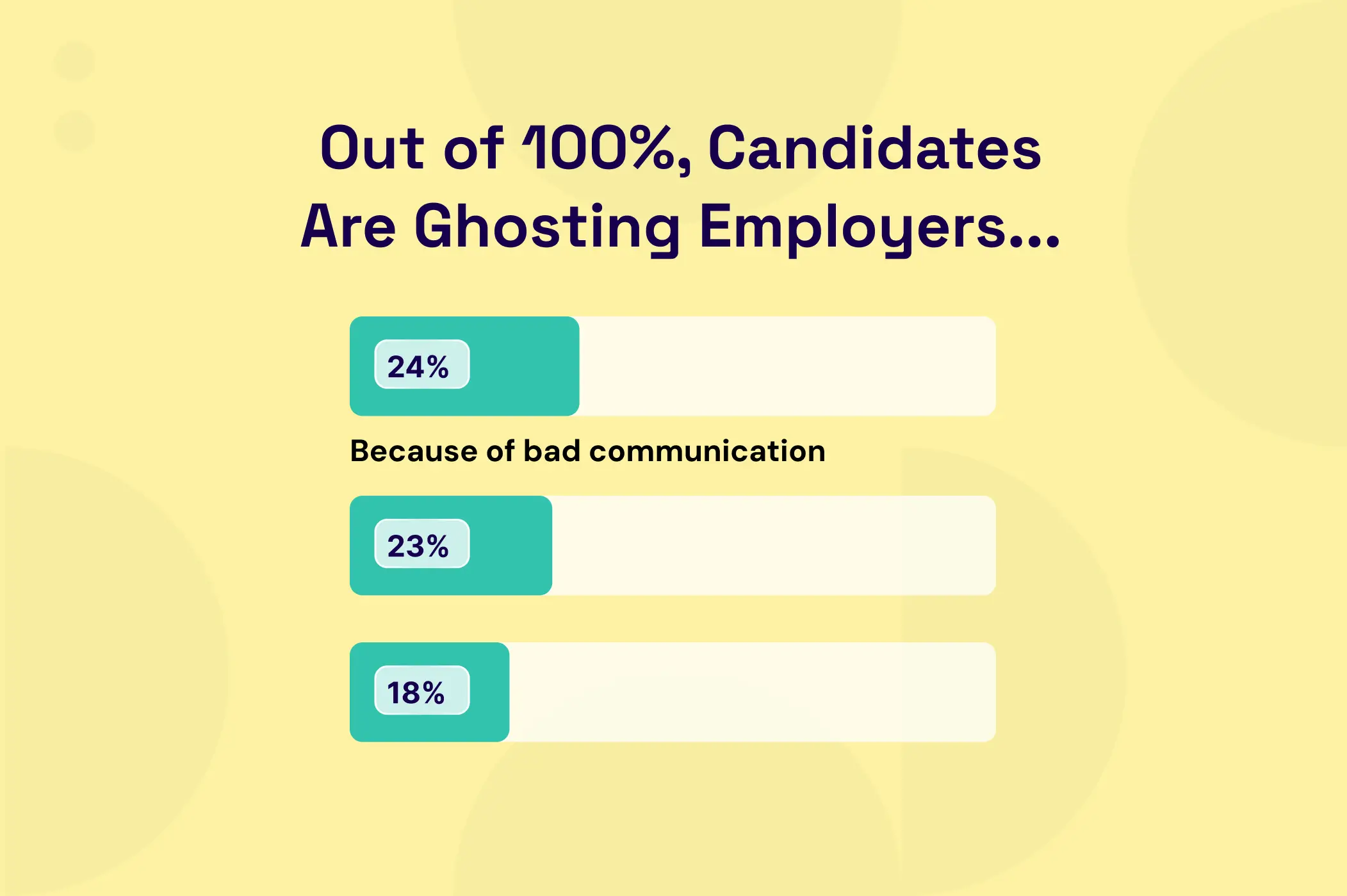Calendly made scheduling simple.
But simplicity stops working when your company grows beyond 300 employees.
We spoke with enterprise-level talent teams, from SaaS, HR, and recruiting-tech companies, who’ve tried to make Calendly work at scale.
Most of them said the same thing: it’s not built for the complexity, compliance, and visibility enterprise recruiting requires.
This post breaks down why Calendly struggles in enterprise environments and what high-volume hiring teams are doing instead.
TL;DR: Quick Answer
Calendly is a great scheduling tool for individuals and small teams.
But for enterprise recruiting, it breaks down fast.
Why it doesn’t work for enterprise scheduling:
- No true ATS integration: reschedules and cancellations aren’t synced.
- No control or analytics across recruiters or departments.
- High enterprise costs ($65K+ annually reported by one customer).
- Security and compliance issues and often blocked by IT in regulated industries.
- No AI-driven logic or automation to handle complexity at scale.
Enterprise recruiting teams need automation plus control. Calendly only offers the first half without using AI.
Why Enterprise Teams Keep Asking if Calendly Works for Them
Enterprise hiring has quite a bit of variance.
Every department, region, and role type has its own scheduling rules and interview structures.
For smaller teams, a single size-size-fits-all scheduling link works well.
When enterprise teams need flexibility, that’s where most scheduling tools, like Calendly, start to crack.
With Calendly, every self-scheduling link is the same. There’s no way to customize logic behind the scenes, such as automatically assigning interviewers by role or enforcing timezone preferences.
It’s designed for simplicity, not for enterprise complexity.
As one enterprise recruiting coordinator on Reddit put it:
“Calendly works fine for first-round screens. But once you hit panel interviews or custom workflows, it breaks.”
That’s the core reason enterprise teams decide to switch away from Calendly.
Unlock the Future of Recruiting— Book a Demo Today!

What Enterprise Recruiting Leaders Actually Experience
To see how this plays out in real life, we spoke with three enterprise-level talent leaders who used Calendly for interview scheduling in the past.
Their stories show why “simple scheduling” doesn’t survive enterprise scale.
The Costly Simplicity Problem
A SaaS company told us they’re paying $65,000 per year for Calendly licenses.
It started as a cost-saver until every recruiter built their own setup.
No shared analytics. No central reporting. No standardization.
Even small inefficiencies compounded. Recruiters duplicated calendar logic, resent invites, and handled last-minute reschedules manually.
As one Reddit recruiter echoed:
“Tried to have hiring managers block time, but it never worked. I spend half my week chasing cancellations.”
That’s six figures of invisible admin work.
At the enterprise level, inconsistency is unscalable.
Every minute lost in coordination delays hiring velocity.
The Integration Dead End
A technical recruiting company using the free version of Calendly told us:
“There’s no central control. If a candidate reschedules, it doesn’t update in Greenhouse.”
Each coordinator had to double-check every interview slot daily.
One missed update meant one missed interview.
A Reddit user said the same:
“Calendly doesn’t talk to Greenhouse. You still end up doing the same manual work just later in the process.”
Without two-way sync, automation becomes illusion.
You can’t optimize what you can’t see.
The Compliance Wall
An enterprise HR company couldn’t use Calendly at all because their IT team blocked third-party integrations.
Coordinators were forced back to spreadsheets and Outlook emails, spending hours each week confirming time zones manually.
One Reddit HR user described the same experience:
“Our IT won’t let us use any external scheduling tool. I’m back to spreadsheets. Feels like 2012.”
All because the tool needs to be an official partner.
Enterprise recruiting lives under strict security and compliance frameworks.
If a scheduling tool can’t pass the audit, it never gets approved.
Where Calendly Falls Short in Enterprise Scheduling
When you’re coordinating hundreds of interviews, a missed integration is a bottleneck to business outcomes.
Why AI-Driven Scheduling Is the Future of Enterprise Recruiting
In 2024, AI entered the chat.
While traditional tools like Calendly still rely on manual setup and static rules, enterprise recruiting has evolved.
AI scheduling agents are changing how coordination works by removing the chaos around recruiting coordinators.
Here’s how AI is already transforming enterprise scheduling:
1. AI Eliminates Calendar Chaos
No more back-and-forth emails or time-zone mishaps.
AI can instantly match interviewer and candidate availability, follow scheduling rules, and send invites without a single Slack message.
2. AI Works 24/7
Recruiting doesn’t stop at 5 p.m.
AI keeps scheduling after hours, sending confirmations, and managing reschedules while the team sleeps.
3. AI Follows Your Workflow
Enterprise scheduling is full of nuance: interviewer load, buffer times, candidate and interviewer preferences.
Our AI follows those rules precisely — adapting to how your team operates instead of forcing new habits.
What the Best Enterprise Teams Do Instead
We can tell you one thing for certain:
The enterprise hiring teams we’ve spoken to are not using Calendly + their ATS (UKG, iCIMS, Workday).
They are investing in systems that scale intelligently, blending AI efficiency with human excellence.
That’s where candidate.fyi enters.
We automate interview logistics with AI precision, truly integrate with ATS platforms, and keep recruiters focused on what matters: relationships.
The Bottom Line
So, is Calendly a good enterprise interview scheduling tool?
Not right now, and here’s why:
- It simplifies individual scheduling but collapses under enterprise complexity.
- It lacks the integrations, controls, and compliance frameworks large organizations need.
- It doesn’t leverage AI or automation to handle the scale of enterprise coordination.
- And it turns recruiting operations into invisible admin work that drags down hiring velocity.
AI scheduling is about freeing recruiting coordinators to do their best work: building relationships and determining fit.
That’s the future we’re building at candidate.fyi:
AI-powered scheduling built for enterprise recruiting teams who expect both precision and humanity.











